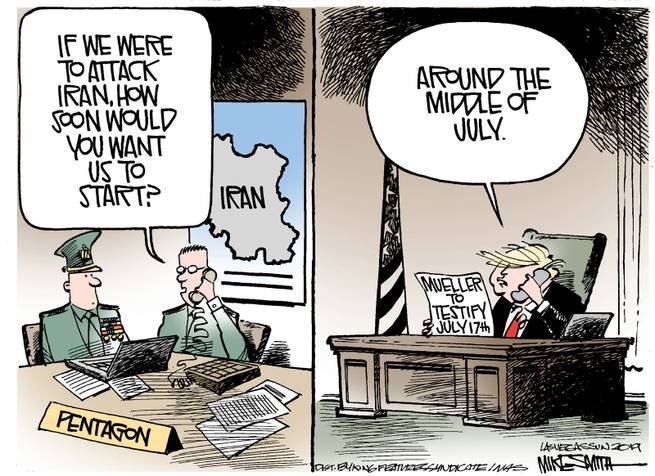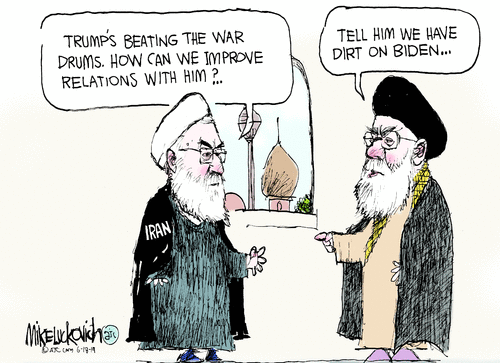Drumbeats category archive
Game of Thrones 0
I do not see what Vladimir Putin hopes to gain by attacking Ukraine, other than a step towards the resurrection of the Russian Empire. It does not seem to be a rational move in any sort of chess game of international diplomacy.
Bloomberg’s Andrew Kluth argues that, indeed, it is not.
The Fifth Column 0
At Above the Law, Alaric Dearment minces no words about Putin’s American dupes, symps, and fellow travelers. A snippet:
More unminced words at the link.
Recommended Reading 0
Noz’s thoughts on what’s happening in Ukraine, particularly his first point.
All That Was Old Is New Again 0
At the Des Moines Register, Richard Cherwitz reminds us of another purported “attack” in another gulf which was used to justify another war for a lie, this one in a country whose name did not start with “I.”.
In Security 0
I tend to be skeptical when persons raise concerns about “national security.” Too often that phrase is used to either intrude illegitimately into areas that are nobody’s business or to hide official misconduct or, perhaps more often, official acts of stupid.
Nevertheless, “national security” is a real thing and ignoring or weakening it costs blood and treasure, as when President George the Worst ignored warnings that Osama Bin Laden was determined to attack the U. S.
In The Guardian, Jeffrey H. Smith argues that Donald Trump and his administration are inimical to legitimate national security. Here’s an excerpt:
Second, some of his actions and utterances are so far outside the bounds of responsible presidential conduct that many professionals who serve in the national security agencies lack confidence in him as commander-in-chief. Much damage has been done and whether it can be repaired, and if so how, is not clear.
Do please follow the link.
“We’ve Heard This Song Before” 0
Thom discusses evangelism and evangelical causes and the danger thereof when they become political.
He starts by somewhat awkwardly establishing a premise the Communism was an evangelical movement, that, one that wished to convince persons to follow it to the exclusion of others, and moves on to argue that evangelical movements can lead to crusades. It’s not as polished as his usual presentations, but I think it’s well worth a listen.
Teed Off 0

Will Bunch:
The good news is that the experts still believe, despite the insane rhetoric and threats from both sides, that a nuclear war involving the United States, North Korea, and assorted allies is highly unlikely. In that sense, it’s a little like comedian Steven Wright’s joke about his plan to live forever: so far, so good.
Follow the link.
Image via Job’s Anger.















